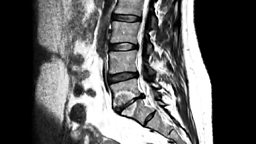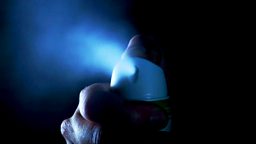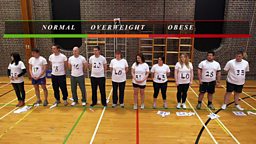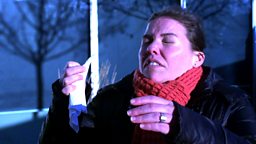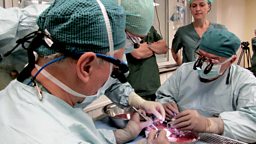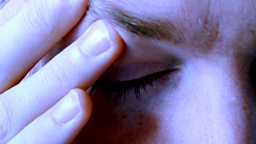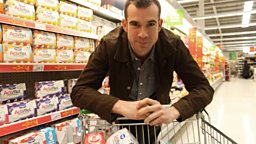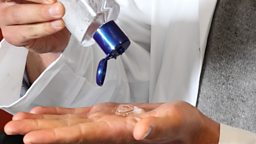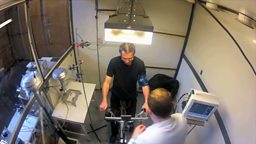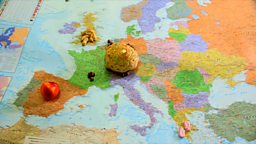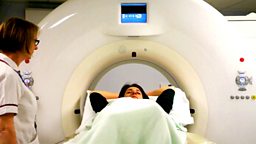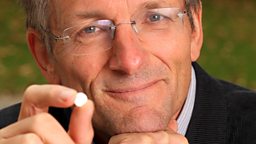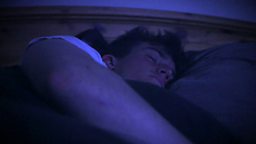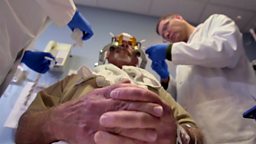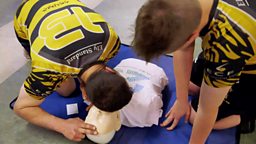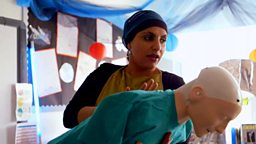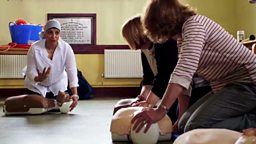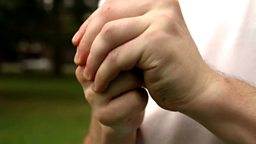How can I get better quality sleep?
What really happens when we fall asleep and how can we all get better sleep? Michael Mosley undergoes an experiment to find out.
By wearing electrodes on his face and scalp, sleep researcher Dr Katharina Wulff can monitor Michael’s brain and muscle activity throughout the night and record how active his brain is, and what it is doing at different phases of the night.
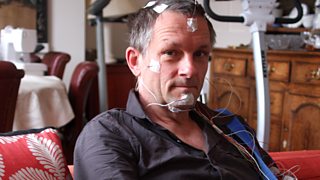
Although we’re not conscious of it, our brains are as active during the night as they are during the day and researchers are just beginning to get grips with what they’re up to.
There are particular phases of sleep, such as REM (Rapid Eye Movement) sleep and Slow Wave (or Deep) sleep, during which our brains seem to be particularly busy at different tasks such as consolidating factual memories (Slow Wave sleep) or processing the emotions that we have experienced during the day (REM sleep).
Not getting enough sleep could, therefore, mean that we are not allowing our brains enough time to do these very important tasks. There’s already research showing that those revising for exams who stayed up all night trying to fact-cram did significantly worse in a test than those who had simply gone to bed and allowed their brains to consolidate their memories instead.
So, how to get better sleep? Well, there are a few key things that researchers have identified:
Avoid blue light
Our eyes have special receptors for bluish light which helps set our body clocks. Unfortunately, computer, TV and phone screens tend to give out quite a lot of this light, and if we are exposed to it before going to bed it can make it more difficult for us to get to sleep. One thing you can do to help is adjust your screens to a yellower (‘warmer’) colour balance. Also try to make sure your bedroom is dark. By contrast, seeing bright daylight in the morning and the middle of the day can help set your body clock.
Don’t drink late
Although drinking alcohol can make you fall asleep faster, one of the chemicals produced when your body breaks down alcohol prevents your brain from going into REM sleep. So drinking it late at night can mean that your brain will be trying to catch up on missed REM sleep at the end of the night – producing particularly fitful sleep and memorable dreams. And if you drink so much that it cannot fit in any at all it might, in desperation, start going into REM sleep whilst you are still awake and conscious – causing hallucinations.
Get active
Physical exercise can help you sleep, but don’t do it just before you want to get to sleep.
Avoid caffeine
Caffeine, as we all know, can stop you feeling sleepy, and it does this by blocking the receptors in the brain for the chemical adenosine, which usually builds up during the day, signalling when it’s time to go to sleep.
Keep to a routine
Don’t binge-sleep at the weekends! However tempting it is to lie-in and stay up late at weekends to recover from the week’s work schedule, it will only disrupt your body clock.

